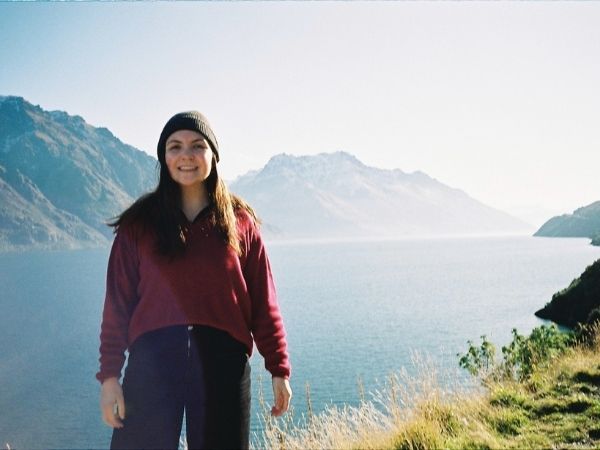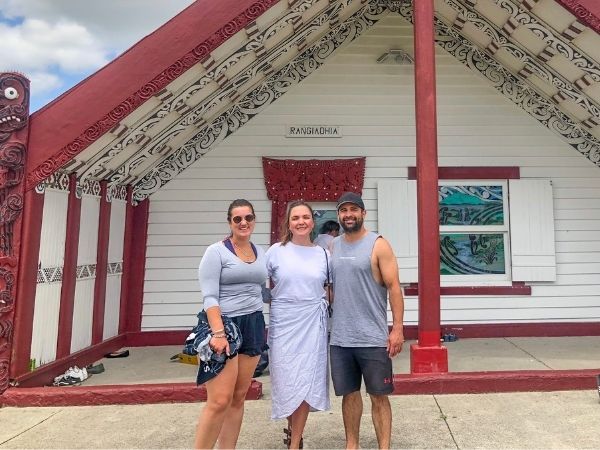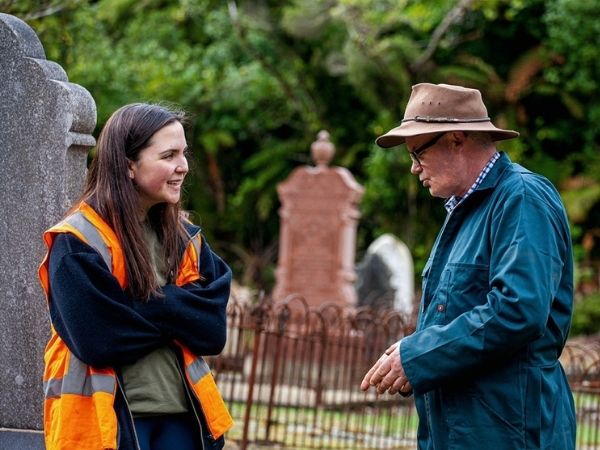It’s no secret Māori and Pasifika are underrepresented across the engineering industry. Despite being aware of this, it can be difficult to know where to learn more about the issue and how we can help bridge this gap. For Māori engineering students, it can be difficult to see how the values of te ao Māori can be integrated into the industry. Alyce Lysaght explores these issues every fortnight in a new podcast series, Māori in Engineering.

Alyce Lysaght
Alyce, why did you create Māori in Engineering?
I’ve learned that there are amazing Māori in the engineering industry across Aotearoa, but there’s not really an accessible platform to learn about their journey, why they became who they are now and how they did it. The podcast is about showcasing Māori stories in the engineering world.
I’m still learning. I’m not an expert in this field, but I’m motivated by setting an example for future tamariki and rangatahi. I am a big believer in leaving a place better than you’ve found it. If tamariki and rangatahi don’t see people like them in workplaces, what do they have to aspire to? You are what you see.
Why should people listen?
There aren’t enough Māori in the engineering world. I’ve shared kōrero with many others about how surprising this is, especially as our tīpuna were at the feet of engineering. Māori have a long history of ingenious innovations and utilising engineering principles. For example, the small wave-like pattern on the hull of a waka reduces rotating eddies to reduce the overall drag enabling the waka to go faster. It’s the same principle as why golf balls have small indents – to make them travel further (fun fact). Our tīpuna knew the engineering principles to design waka this way – although they wouldn’t have called them kinetic energy – but they had the principles – it wasn’t by accident.
The podcast isn’t a be-all-end-all solution to solve the underrepresentation of Māori in the engineering world. It’s a platform to shine a light on the amazing engineers in Aotearoa. And ultimately to inspire tauira māori to pursue study and a career in engineering. It’s also a space for people to learn and to emphasise the importance of having Māori in engineering.
Every two weeks, I will be sharing kōrero with leading Māori in the engineering world to discuss their own story and whakaaro.
If I don’t create the podcast, who else will?

Alyce outside Rangiohia Marae in Mataatā with Courtney and Rawiri who supported her in the Tuia kaupapa
Who should listen?
It’s for anyone. School-aged people, engineers, non-engineers, anyone who wants to listen.
Where did your drive for te reo Māori come from?
I had only started my te reo Māori journey three years ago, at the beginning of my studies at the University of Canterbury. My Mum’s father, my grandfather, was raised in the 60s where there was a negative stigma in Aotearoa towards things like speaking te reo Māori. So I wasn’t exposed to te reo Māori growing up. Knowing that my grandfather spoke reo Māori as a child and lost it due to no fault of his own, put a fire in my belly to learn it myself.
I was first properly exposed to it when I was selected by the then-Mayor of Ashburton City Council, Donna Favel who selected me for The Tuia Kaupapa, a one-on-one mentorship programme held over 1 year that consists of regular wānanga held at marae around the motu. We would share ideas, connect and it was a safe space to be exposed and learn te ao Māori. To this day, I still hold a place dear in my heart for that kaupapa and am still connected as a tuakana.
Why did you choose to study engineering?
This is a classic answer, but I always had an interest in physics and calculus during high school. I was intrigued and enjoyed learning how things worked and why. It was actually my physics teacher who mentioned I should look at engineering to my parents in a parent-teacher interview. After some research, I knew it was something I’d enjoy.
I remember looking around my university class and being surprised there weren’t more Māori studying environmental engineering given the significance of te taiao in te ao Māori. It’s so important that Māori are in the seat talking and helping to plan for the future of the environment in Aotearoa for generations to come. To come from both an engineering background and te ao Māori perspective when addressing the environment is powerful. But I get it; engineering study is complex – the workload is intense, and you have to develop a lot of technical skills in a short space of time, but with hard work, it’s definitely possible.
I’m not someone to give up – I dig deep when I need to. I think we’ve all got that ability in us; we just need to have the confidence to find it. I was lucky I had a really strong support system around me in high school. My parents, too, are great role models – my Dad is even studying for his building apprenticeship at 53 years old!
My teachers had confidence in me; they believed in me when I didn’t believe in myself. That’s what I try to do with my mentoring at ENG Me! at uni (where Alyce works as a volunteer mentor to first-year Māori engineering students). I try and give people the confidence to believe that they can complete an engineering degree.

Alyce with Charlie from Hokitika Lions Club where the SVA volunteered
You’re a volunteer for Student Volunteer Army – tell us more
Yes! I remember listening to Sam Johnson from Student Volunteer Army in Year 12 at high school. I was in awe of him and the story of how SVA came to be – and now I can call him a friend – we work very closely together as my role as Vice President for the University of Canterbury club. To have the opportunity to provide accessible volunteering opportunities for UC students and support communities has redefined my university experience.
So what can the consulting and engineering industry do?
Be part of the conversation and be willing to learn. Listen and learn on the Māori in Engineering podcast! Understand that as consultants and engineers, we design and build things for everyone. We need diversity of thought and ideas. I know The Diversity Agenda is a movement within the sector in which businesses can sign up to show their commitment to diversity.
See who has signed up to the Diversity Agenda and find out how you can get involved
Connect with Alyce Lysaght on LinkedIn
Listen to Alyce’s podcast on Spotify and follow her on Instagram
